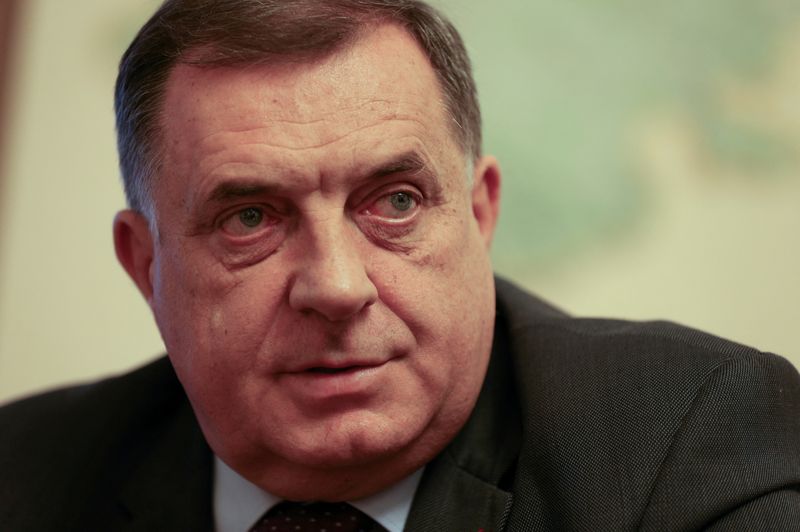SARAJEVO (Reuters) – Lawmakers in Bosnia’s autonomous Serb Republic (RS) voted on Thursday to form their own body that will choose judges and prosecutors, effectively pulling the region out of the state’s top judicial institution as part of their leaders’ separatist agenda.
Western diplomats based with the Peace Implementation Council (PIC), the body overseeing the restoration of peace in Bosnia after its war in the 1990s, said the move violated the country’s constitution and legal order.
Bosnia has been going through its worst political crisis since the end of the war, with Bosnian Serbs challenging state institutions as part of their longtime bid to secede and eventually join neighbouring Serbia.
The draft law on the High Judicial and Prosecutorial Council (HJPC) was approved with 45 votes for out of 63 votes cast in the 83-seat parliament, and will now pass to legal experts and institutions for their comments during a 90-day period before it is adopted.
“The implementation of the RS Law on HJPC would create an unconstitutional body, jeopardizing the fundamental legal rights of all Bosnia-Herzegovina citizens, especially those who live in the RS,” the PIC said in a statement.
It said the region’s move attempted to unilaterally assume the constitutional responsibilities of the state, “constituting an unacceptable interference in the independence of the judiciary and signalling a backsliding of the whole country on European standards in rule of law”.
The Serb Republic parliament, dominated by the SNSD party of Bosnian Serb nationalist leader Milorad Dodik, has already passed a non-binding motion to withdraw the region from Bosnia’s armed forces, judiciary and tax system.
The three institutions represent key pillars of joint security, rule of law and the economic system in the Balkan country which was divided into two autonomous regions – the Serb Republic and the Federation dominated by Croats and Bosniaks – after its 1992-1995 war in which 100,000 had been killed.
Most opposition MPs abstained from voting, with some saying the law was part of pre-election campaigning by Dodik and others casting doubt about the efficiency of a new institution and its functioning in parallel with the existing state HJPC.
Transparency International corruption watchdog has warned the law would be a “dangerous precedent”, attempting to overthrow the legal order and establish additional capture of judicial institutions through the appointment of eligible judges and prosecutors.
(Reporting by Daria Sito-Sucic; Editing by Alexandra Hudson)

























